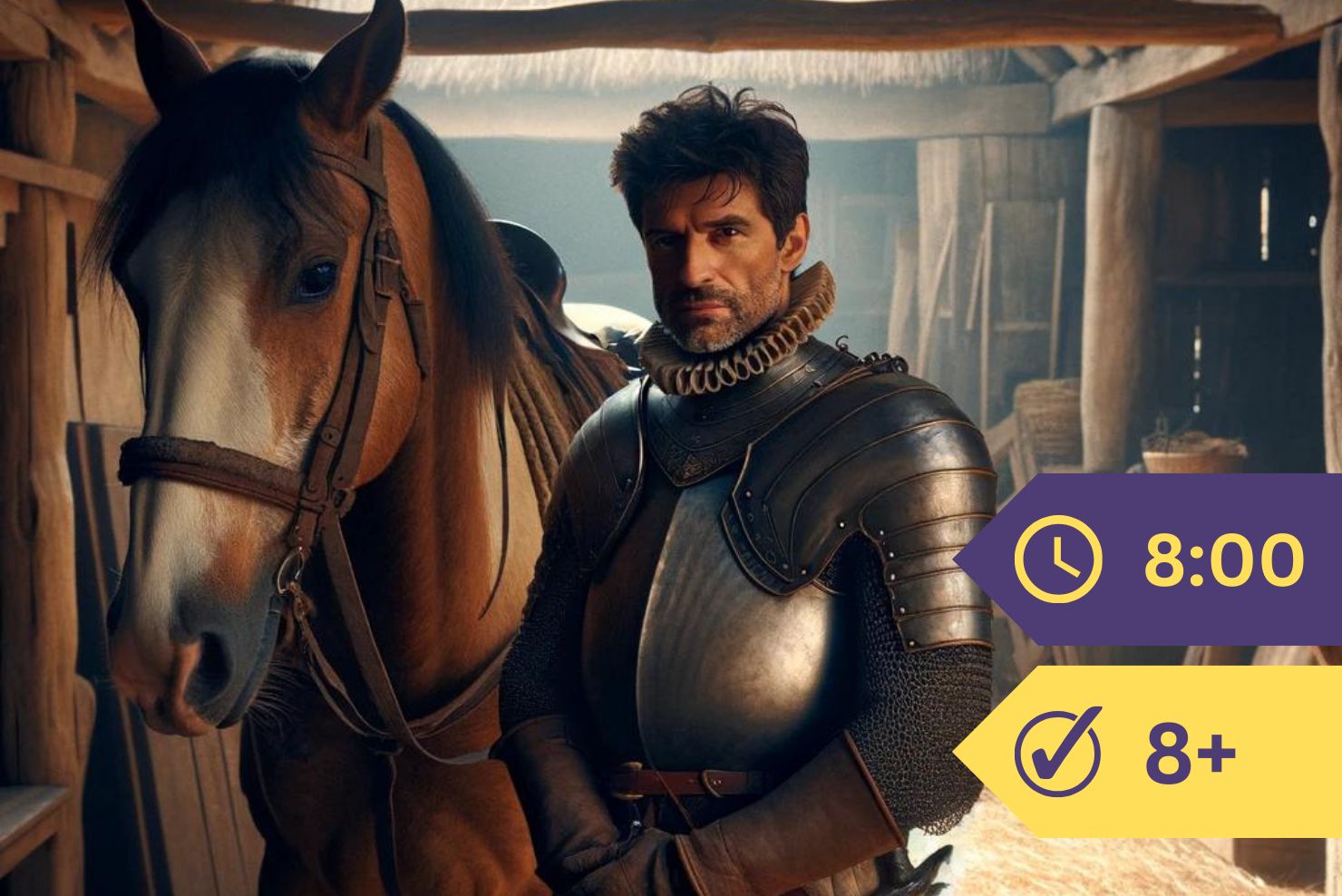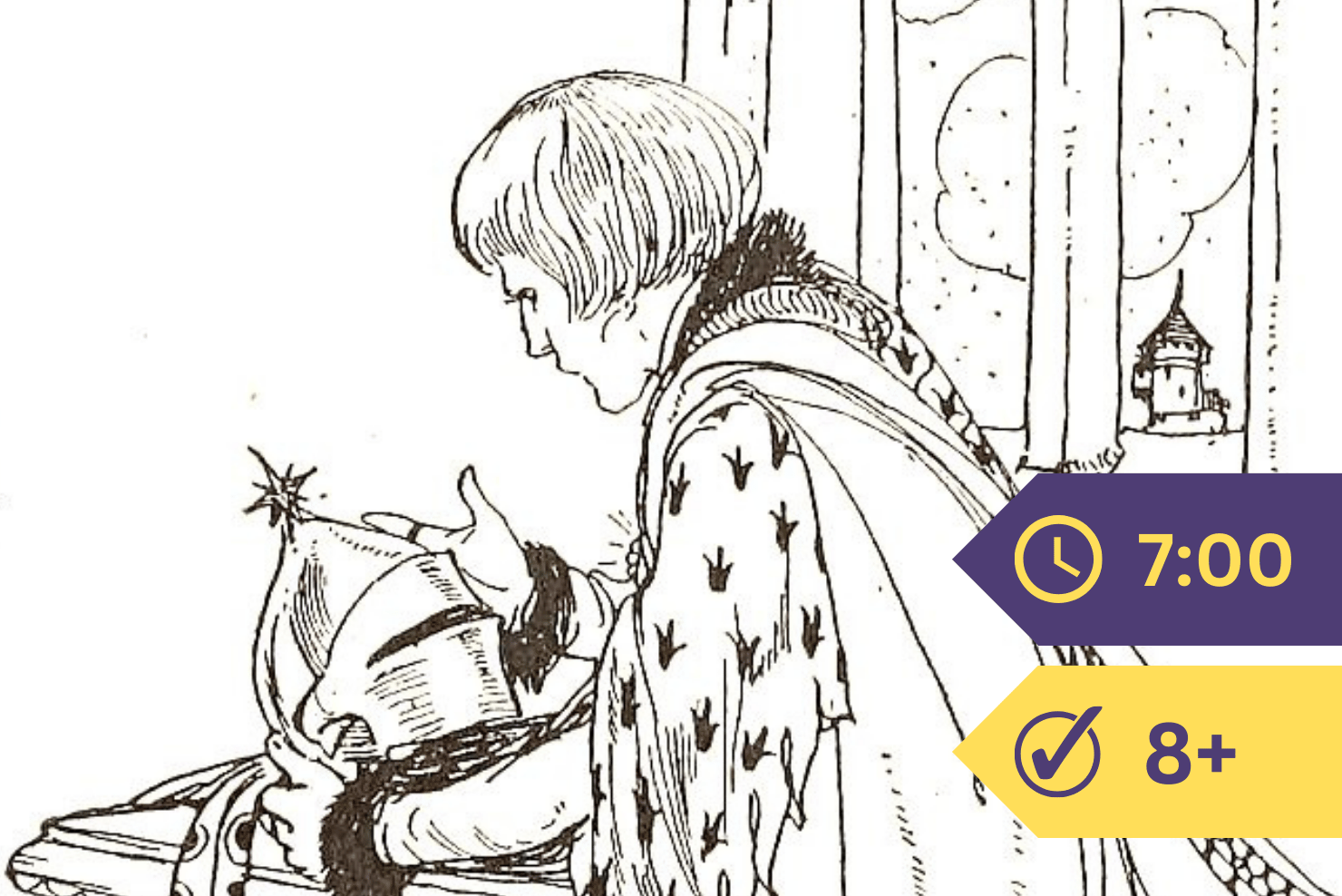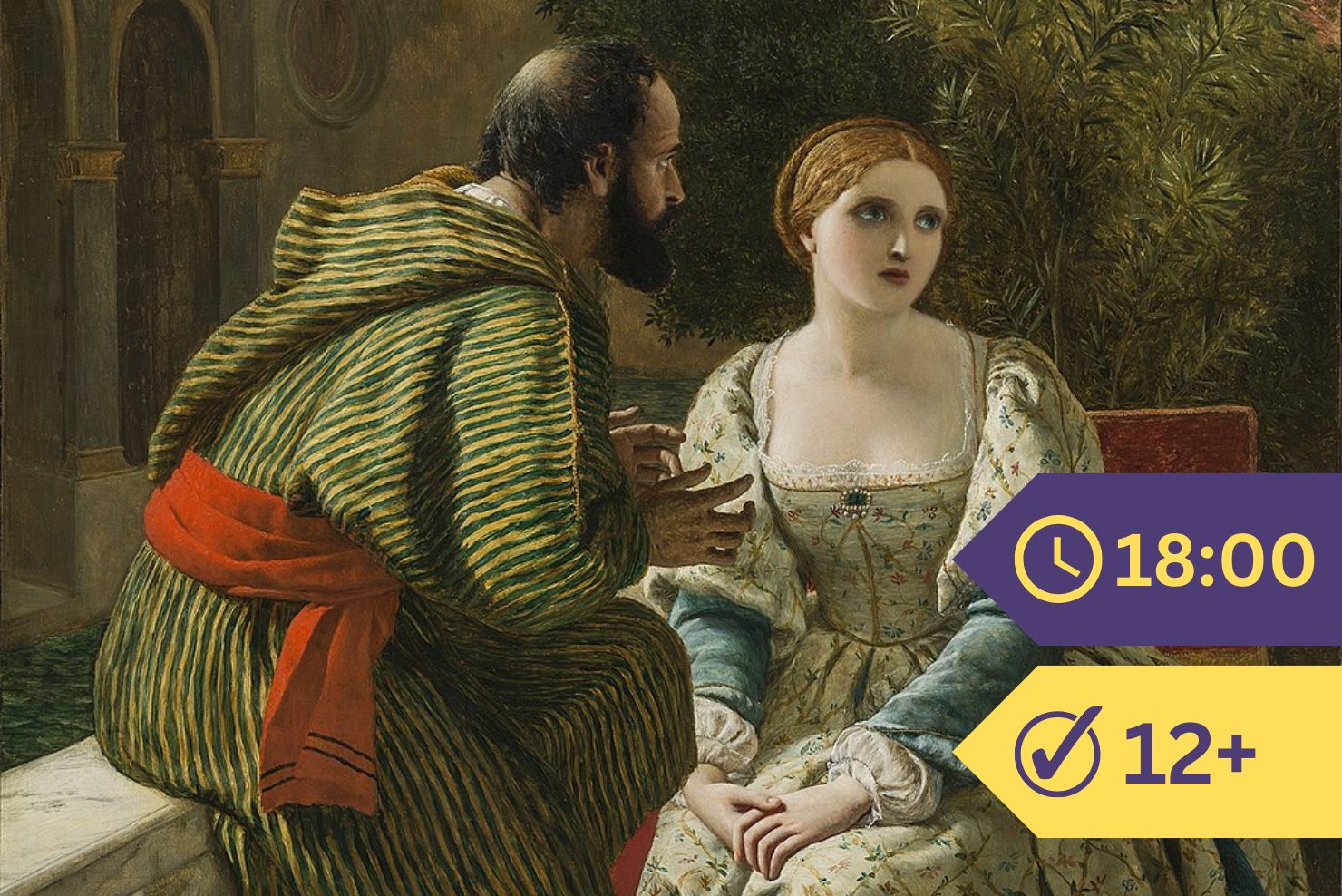The country to which Horn and his comrades had come was called Westerness: Aylmer the Good was king of it. But of that the wanderers knew nought as yet.
They journeyed far over hill and dale, ignorant of the way, and seeing no living man, until, as the day drew to an end? there met them Aylmer the king himself. “Whence do you come, friends?” asked he. “Who are you that are so fair and straight of body?”
Horn spoke up for them all, for he was wisest and most skilled in the use of courteous words. “We are from Suddenne, sire, of good lineage and Christian faith. The pagans came to our land, and slew my father and many others, and drove us from our homes. We thirteen whom you see were set adrift in a boat, to be the sport of the sea; a day and a night have we travelled without sail or rudder, and our boat brought us to this land. We are in your hands, sire: slay us, or keep us bound as prisoners; do with us as you will.”
The good king was no ungentle boor: he spoke them fair and graciously. “Tell me, child,” he said, “what is your name? No harm shall come to you at my hands, whosoever you he.”
“Horn am I called, sire.”
“Horn, child, you are well and truly named: your fame shall ring like a horn over dale and hill. Now, Horn, come with me. You and your comrades shall abide at my court.”
They set out for the king’s palace. When they were come thither, Aylmer entrusted them to his steward, Athelbrus, whom he charged to bring them up in knightly ways. They were added to Aylmer’s household, and taught all that squires of kings should know. But Horn was to come to greater things than this. He learnt quickly, and became beloved by every one; and most of all, Rimenhild, the king’s daughter, loved him from the day when she first set eyes on him. Her love for him grew daily stronger and stronger, though she dared speak no word of it to him, for she was a princess, and he only a squire rescued by chance from the sea.
At length Rimenhild could hide her love no longer.
She sent for Athelbrus the steward, and bade him bring Horn to her bower. But he, guessing her secret from her wild looks, was unwilling to send Horn to her, fearing the king’s displeasure; and he bade Athulf, Horn’s dearest companion, go to the princess instead, hoping either that the princess would not know him from Horn (for she had as yet spoken to neither of them, and they were much alike in face and mien), or that by this plan she would see the folly of her desire.
Athulf came to Rimenhild’s bower, and she did not know that he was not Horn, and received him lovingly. But soon the trick was made plain, for Athulf, as beseems a loyal heart, could not hear himself praised above all other squires at Aylmer’s court, and vowed that Horn was far fairer and better than he. Then Rimenhild in a rage sent him from her, and bade Athelbrus bring Horn to her without more ado. And thus at last Horn came before the princess.
“King’s daughter,” said he with reverence and courtesy, “Athelbrus, the steward, bade me come to you here. Say what you would have me do.”
Rimenhild rose, answering nothing till she had taken him by the hand, and made him sit by her, and embraced him lovingly. “Welcome, Horn,” she said; “you are so fair that I cannot but love you. Take me to wife; have pity on my love.”
Horn knew not what to say. “Princess,” he began at last, “I am too lowly for such a wife as you. I am but a thrall and a foundling, and owe all that I have to the king your sire. There is no meet wedding between a thrall and the king’s daughter.” At those words Rimenhild fell into a swoon; and Horn was filled with pity and love at the sight, and took her in his arms, and kissed her.
“Dear lady,” he said, “be brave. Help me to win knighthood at the hands of my lord the king; if I be dubbed knight my thraldom is ended, and I am free to love you, as I do in my heart already.” For Horn had long loved the princess secretly, but dared not hope that she would give him her love in turn.
Rimenhild came to her senses as he spoke. “Horn,” she said, “it shall be as you wish. Ere fourteen days have passed you shall be made a knight.”
Thereupon she sent for Athelbrus again, and bade him pray the king Aylmer to dub Horn a knight; and, to be brief, Horn was speedily knighted, and, asking the king’s leave, himself knighted in turn his twelve companions.
As soon as he was knighted, Rimenhild called him to her; and Athulf, his dear comrade, went with him into her presence. “Sir Horn, my knight,” she said, “sit by me here. See, it is time to fulfil your word. Take me for your wife.”
“Nay, Rimenhild,” answered Horn; “that may not be yet. It is not enough that I am knighted. I must prove my knighthood, as all men do, in combat with some other knight. I must do a deed of prowess in the field for love of you: then if I win through with my life, I will return and take you to wife.”
“Be it so, Horn. Now take from me this carven ring of gold. On it is wrought: ‘Be true to Rimenhild.’ Wear it always on your finger, for my love’s sake. The stone in it has such grace that never need you fear any wound nor shrink from any combat, if you do but wear this ring, and look steadfastly upon it, and think of me. And you, Athulf, you too, when you have proven your knighthood, shall have such another ring also. Sir Horn, may Heaven bless and keep you, and bring you safe to me again.”
With that Horn kissed her, and received her blessing, and went away to prove his knighthood in brave feats of arms.







